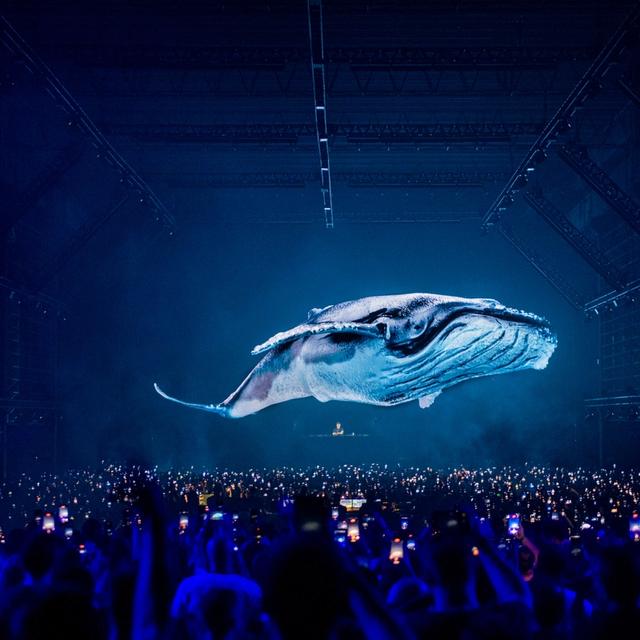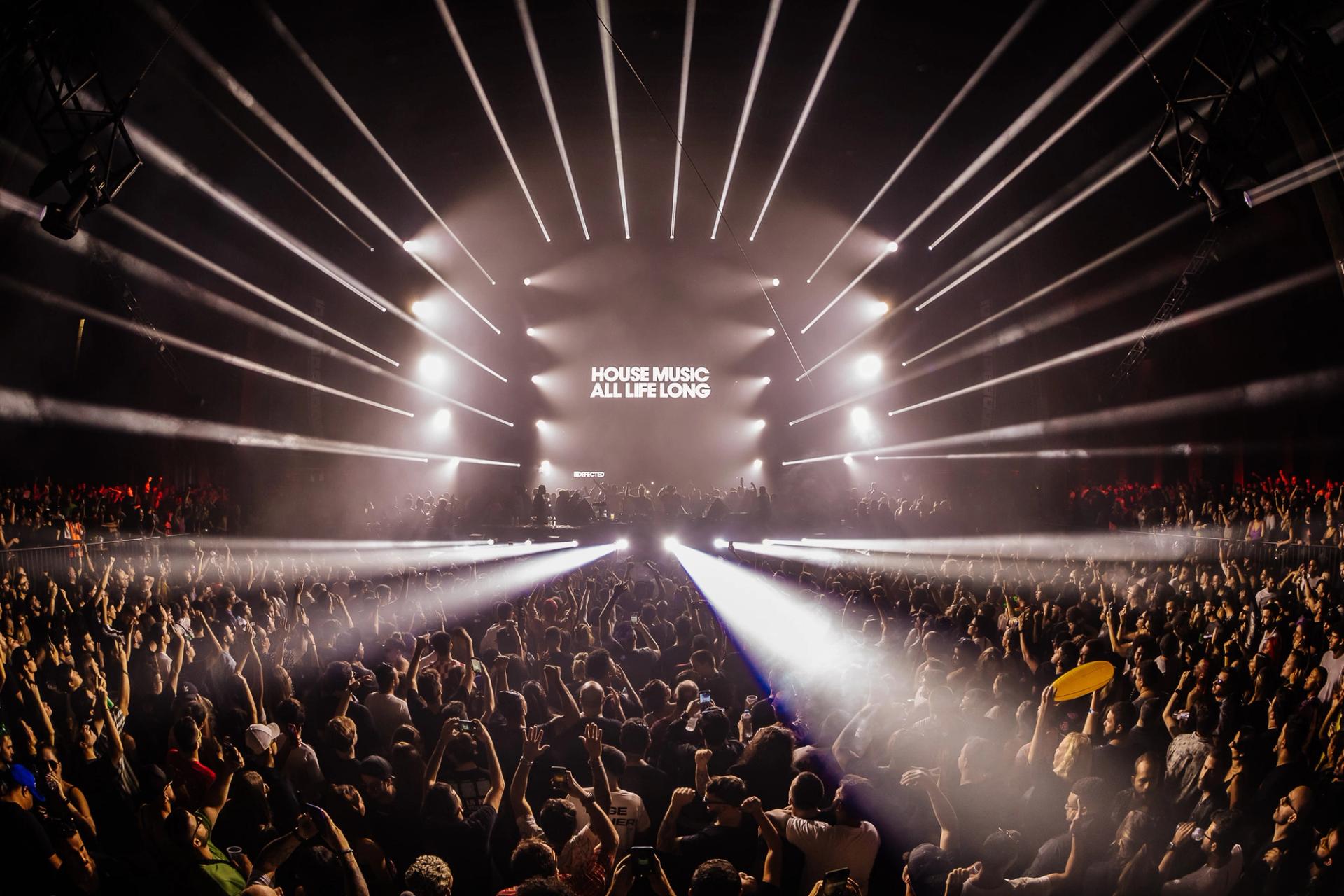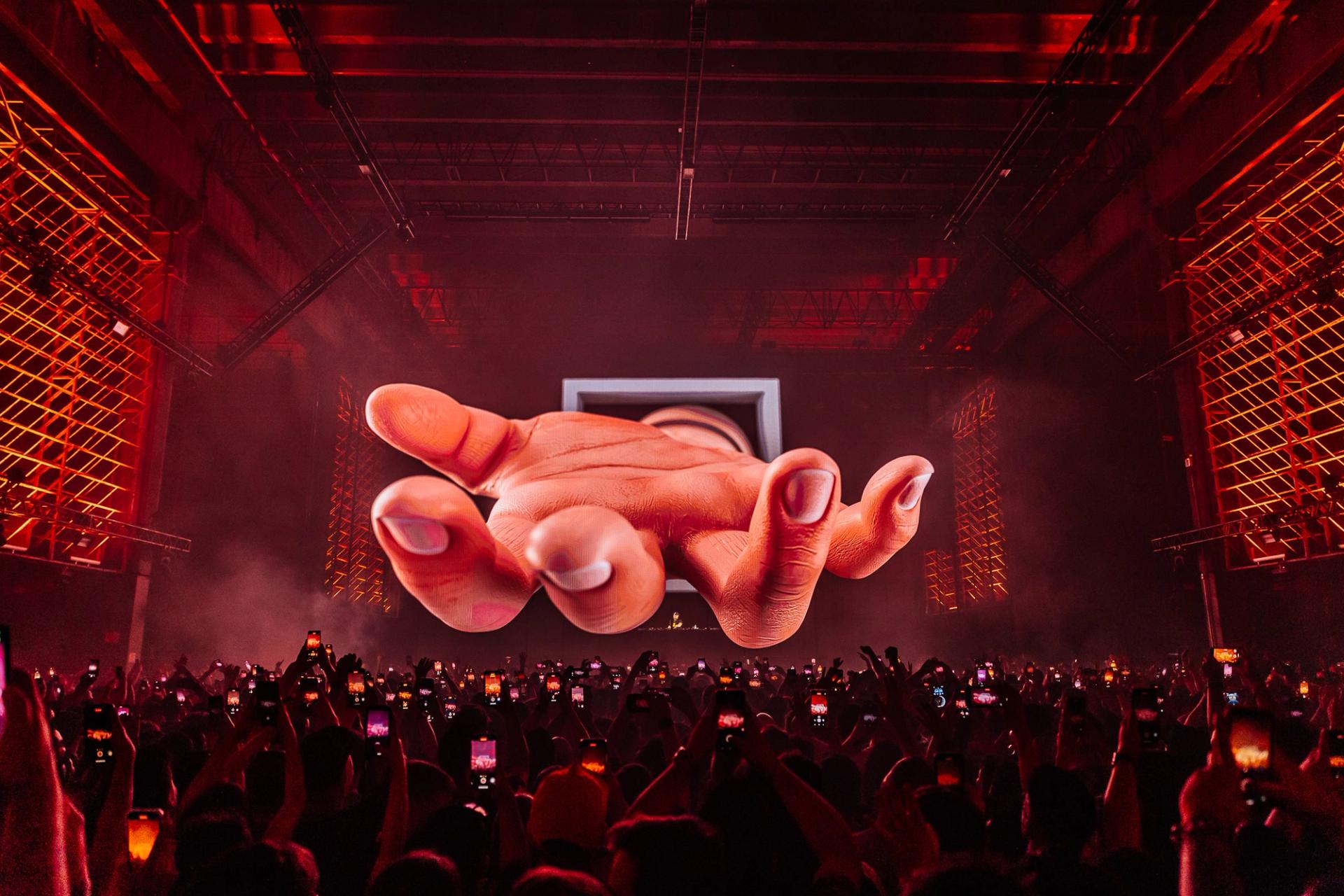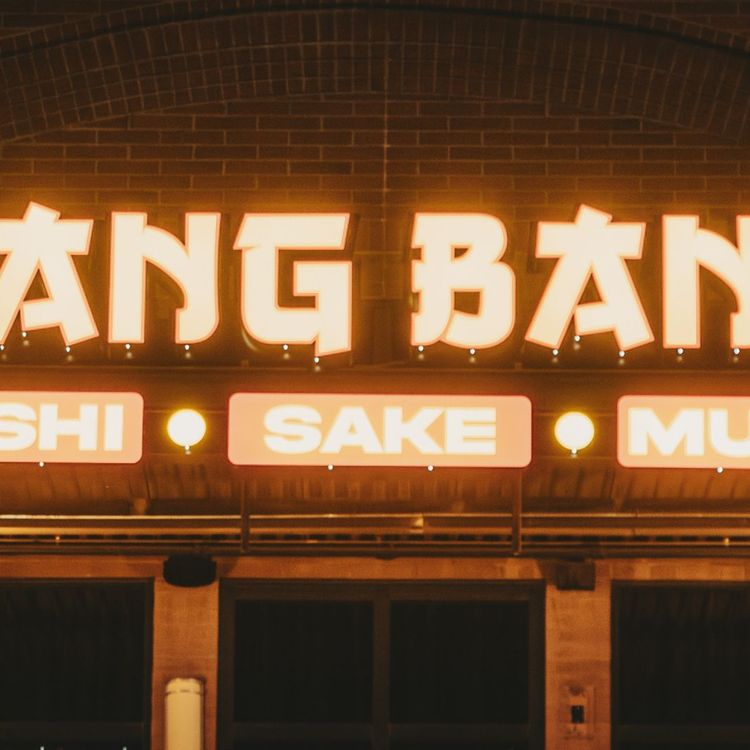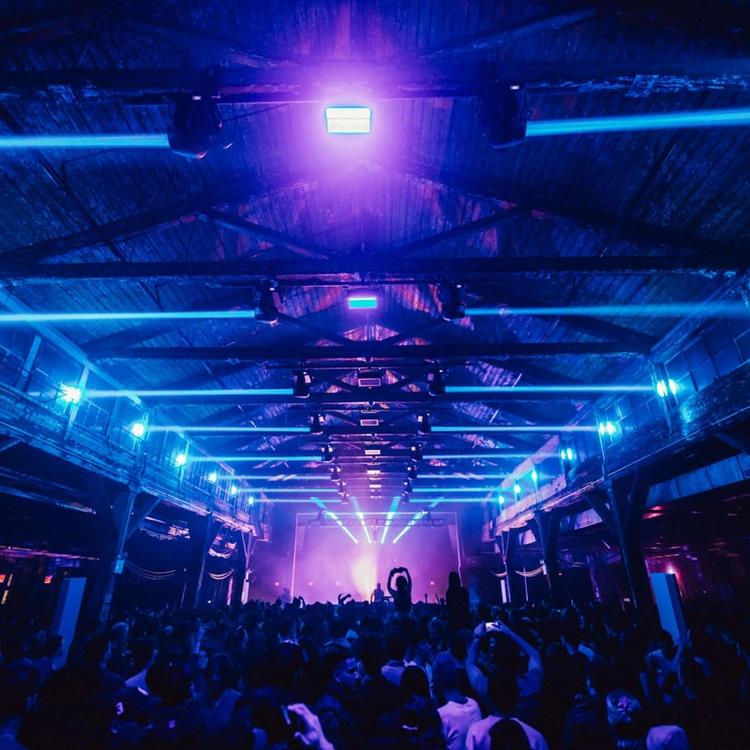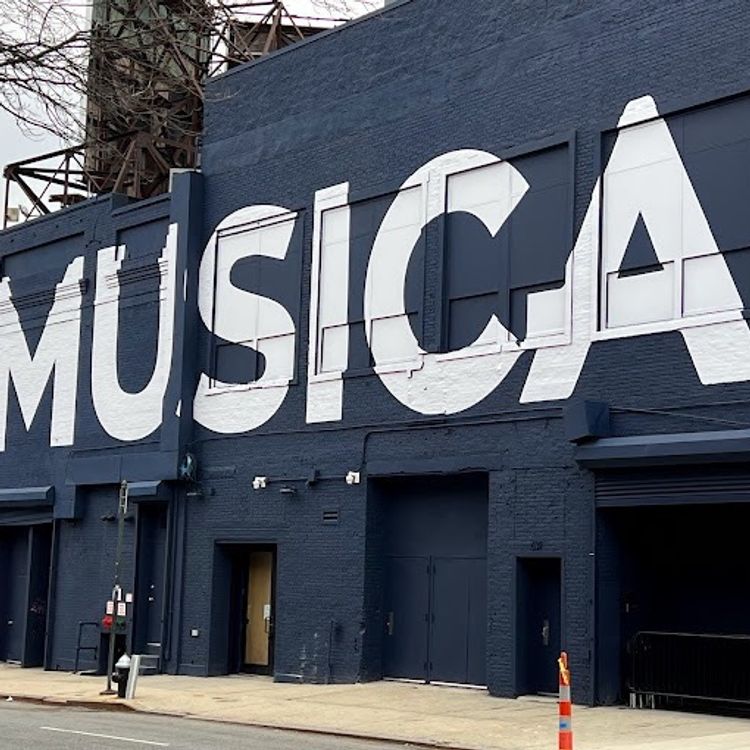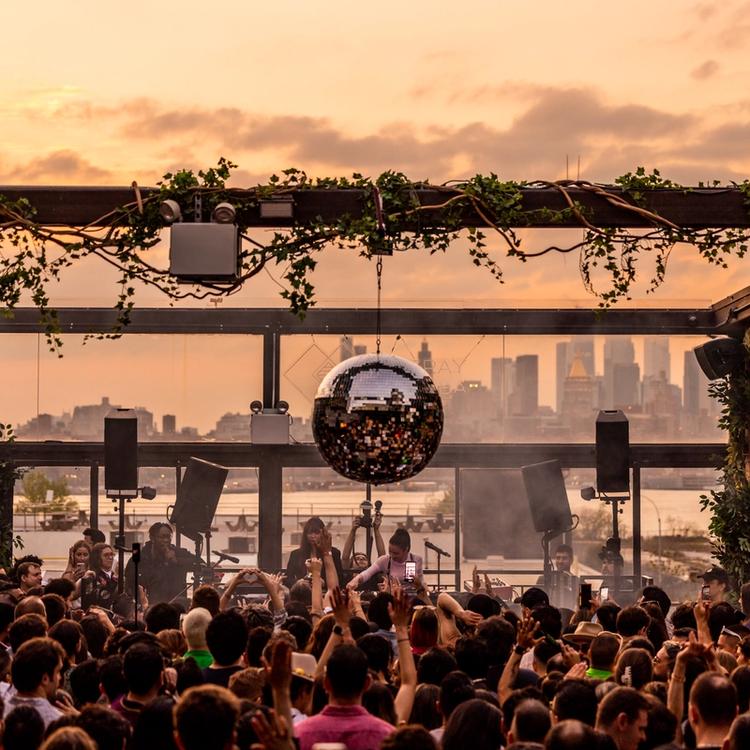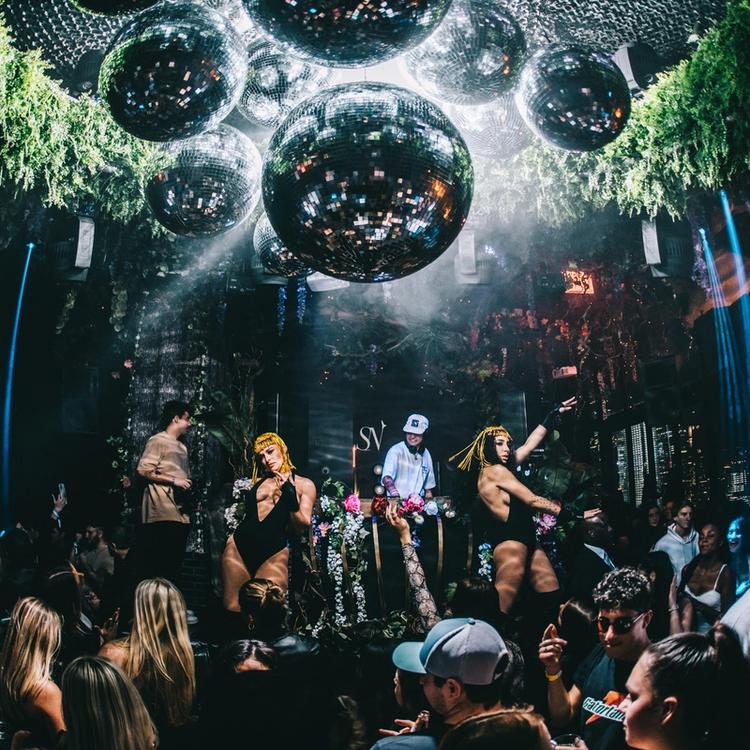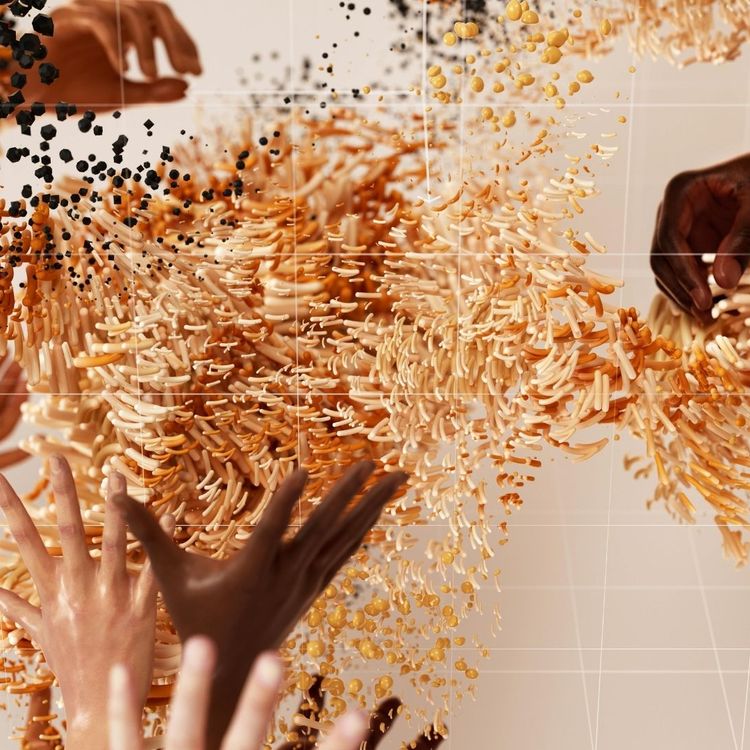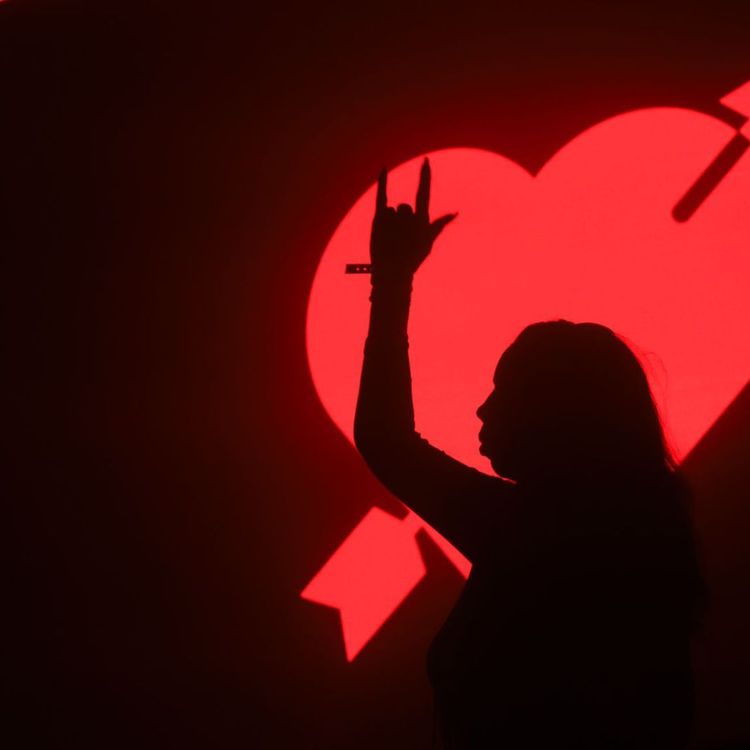Venue Spotlight
Under the same roof that once provided shelter to an icon of São Paulo, Brazil's industrial revolution rises ARCA (ARK, in English). Described as a symbol of renovation, transformation, protection, and rebirth, it's a versatile space adaptable for events, from concerts and exhibitions to conferences and corporate events. ARCA arises as a place to host the ideas, people, and experiences that will revolutionize the city at a time when Sao Paulo is looking for new ideas and spaces.
Known for its iconic architectural design and state-of-the-art technology, ARCA offers visitors a unique experience that combines art and technology, creating an innovative way to interact with the space. The venue is equipped with the latest lighting, sound, and audio-visual systems, and its spacious interior provides ample room for guests to move around and mingle. Visitors can expect to see cutting-edge exhibitions, live performances, and engaging workshops, making Arca an essential destination for anyone interested in contemporary art and culture.
Gray Area speaks to manager and co-founder Mauricio Soares about running a state-of-the-art venue like ARCA.
What is the story of ARCA? How did it come to be?
In March 2017, my partner and I were looking for a spot to promote Awakenings in São Paulo. We were and still are big fans of the event, and we wanted to reproduce that industrial atmosphere we found in Amsterdam in our home city. So we spent months scanning the city, looking for the perfect spot. When we entered the warehouse that would become ARCA, it was so monumental and special that we looked at each other and said, "it's not going to be just a one-night stand. You know we gotta do something else with the space."
The way that we found to make it a reality was to broaden the scope we initially had in mind and create this platform for the whole creative industry. So, we got all sorts of events: audio-visual projects, art projects, photo shoots, advertising, and filmings. It's really like a blank canvas. ARCA is Portuguese for ark, so, like in Noah's Ark, you know we wanted to bring together all the species of the creative industry.
Can you go into detail about what brought this idea to life?
Back in 2017, my partner and I were working together at ID&T Brazil/ plus network—a company that was part of the SFX group. When all the cash flow problems at SFX came to be, we got a memo from the US saying, "hey guys, we're not able to invest any more money in the Brazilian operation, so whatever risk you take there, it's on our own." We thought, okay if we're going to take the risk on our own, we might as well do it in our own company.
We're not rich. We don't come from wealthy families. So, we didn't have a lot of money for a large campaign. We knew right from the start that we needed to bring special projects that would be enhanced by the venue's atmosphere. We inaugurated the space with São Paulo Fashion Week in October 2018. So immediately in the first event, we had journalists, we had people from the fashion scene, people from the music scene all there being amazed by such a huge space, such a different space [that was] so unusual and of course tagging the location ARCA which was great for us.
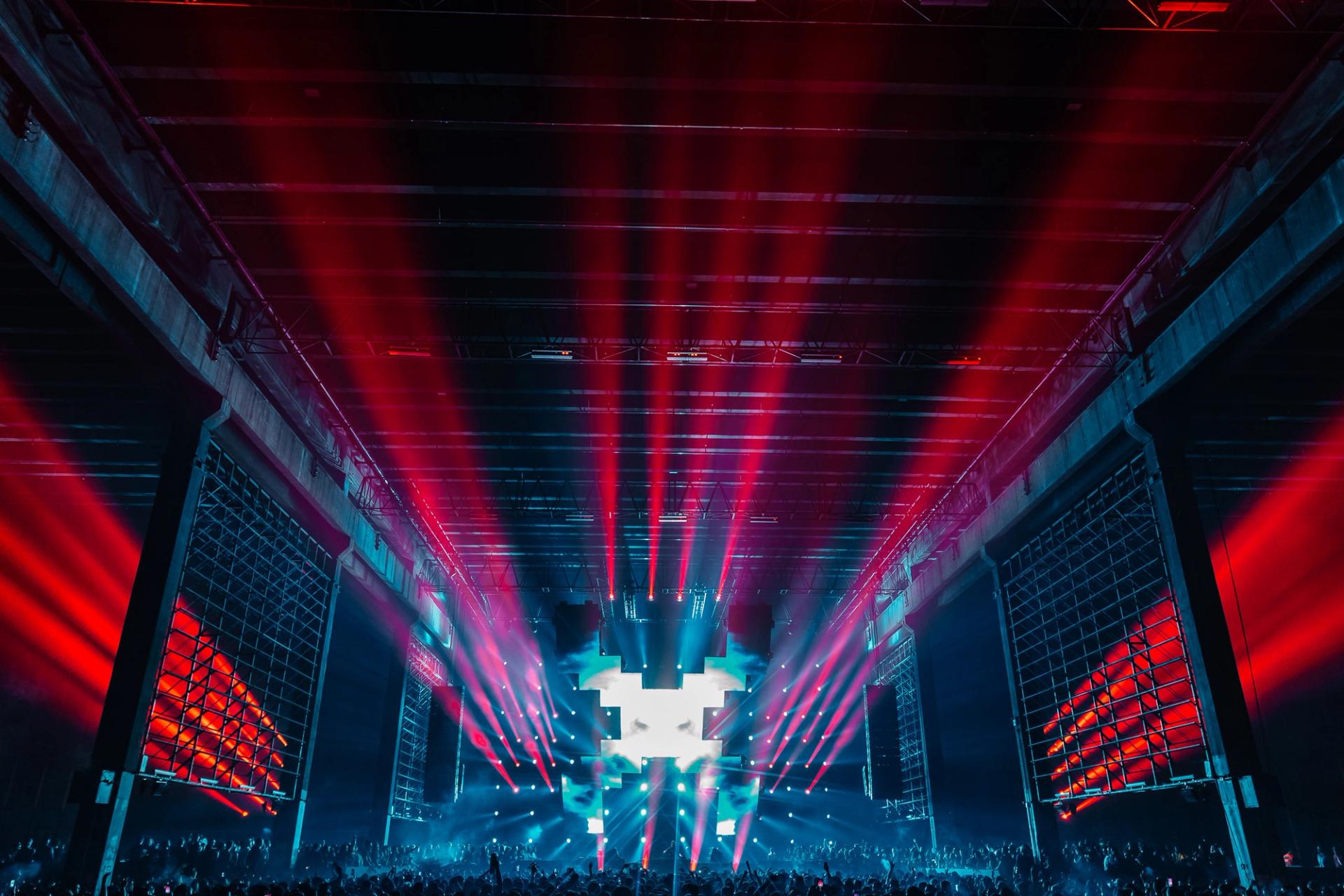
KNTXT at ARCA 2022
That is amazing and encouraging for those of us who want to pursue our dreams.
It's been a really special ride. In September 2019, we opened MS-Live, our event production and promotion company. They work in tandem as hardware and software. ARCA is the hardware, MS-Live is the software. That allows us to improve in every production that we do there. We correct some errors. We improve some things. We listen a lot to our audience; their feedback is really important. We're always evolving in our value proposition for ourselves, our clients, and ultimately all visitors.
How would you say ARCA symbolizes renovation, transformation, protection, and rebirth?
That area of São Paulo was degraded—a lot of empty warehouses, drug addicts on the streets, a lot of poverty surrounding it. So right from the beginning, we wanted it to be inclusive not only for creatives but for the community. We do that in different ways. We provide free tickets for the events to this community, job opportunities. We also promote capacitation programs every now and then to give these people hope for a better future and nurture a healthy relationship with the surrounding community. We don't want to be like an alien mothership that comes to do their things and goes away with all the resources and the wealth. We want this transformation to be inclusive and these people to be a part of it.
Give us a bit of perspective and describe ARCA to someone who has never set foot in the venue.
It's almost 9000 m² (97,000 sq. ft) of internal area, 16m high ceilings. That gives us a lot of space for the most amazing productions like Afterlife, which we had in March 2022 after waiting through the whole pandemic. It was an event that was supposed to happen two days after the lockdown started in São Paulo. So we had all the international crew, all the production was already set up, and we had to dismantle it and wait for two years. It was a real level-up event for Afterlife because of the creative resources that we have at ARCA. We transformed the original structure to have stage trusses. We have a capacity of approximately 30 tons of railing that sets us apart from other venues and allows for much more creative freedom for the people that do events at our venue.
ARCA is known to host a wealth of ideas. What style or genre of music/entertainment do you normally have going on in your establishment?
Currently, we're more techno-oriented, but the idea moving forward is to bring more diversity to it. We already had events like Defected last year. This year we're working on bringing Glitterbox to Brazil. We're very excited about it. We also want to do more mainstream-oriented events. We had Armin Van Buuren last year. This year in the second half of 2023, we'll have a couple of mainstream artists doing headline shows at ARCA. We're excited about it because we don't want to cater only to a subgenre. We want to cater to all the electronic music scene. From the real square corporate events to gastronomy events, barbecue events, fashion shows, and art exhibitions, we want to keep this diversity because it makes the space even more special. We're bringing this kind of scarcity that we have one or two events for each subgroup a year, and then every time that people go there, they're really happy to be there. They are amazed by the different productions, and that's how we want to move forward.
What is the craziest experience you have ever witnessed at your establishment?
I have to say that it was a drive-through art exhibition. It was an event that we did in the first peak of the pandemic in Brazil. It was a real challenge because, as everyone else, we were at home, depressed, not knowing what the future would bring. Seeing all the "drive-in this, drive-in that," we thought maybe there's an opportunity to tweak this idea and have this experience that people could have in person even during the most harsh period of the pandemic. We worked with some people from the municipality to develop what the model would look like in terms of safety, health, social distance, and how many people we could have in each car, how we could provide this experience to people that didn't have their own cars. So we had four cars that were completely sanitized and sterilized after being used by each group. It was really amazing. The feedback we had from people was overwhelming. And on top of that, it brought us media exposure in over 35 countries.
ARCA has, in the past, thrown events with the likes of Armin Van Buuren, Defected Records, and Anjunadeep. If you had to choose one performance to be your most memorable at your establishment, which would it have been?
That's an interesting question. It's difficult to say. You know, it's like asking someone what's your favorite child. I think for the time that we waited for it and the level of production and the challenges we faced to have that event there, I have to say Eric Prydz Holo. The fact that only five other venues in the whole world had that show, the fact that we, the Brazilian audience, had been waiting for almost 15 years for him to come to Brazil because of the flying phobia, that was a real special moment for us to be able to be a part in bringing this to reality.
Do you have any future advancements or changes?
For now, we just did some additional restorations and improvements. Now we can have power generators working in redundancy, so we're not dependent at all on public electricity. That for São Paulo is a very nice thing, especially during the summer rains, we get power outages throughout the city very frequently. The new lighting system—we installed modern equipment that lowered our electric consumption by 75%, making the space even greener. I think, for the time being, we're going to keep the space as it is, but we are exploring opportunities for avant-garde events. Things that involve new media arts together with music this is something that will be quite fresh for the São Paulo audience.
Now a little more about you, What are your favorite aspects of your job and being in the entertainment industry?
I think the sense of accomplishment because when you work for a multinational corporation under a huge structure, you're just a small piece in a huge machine. Most of the time, you don't actually know what happens before that job comes to your table and what happens to it after you deliver it to the next phase. Working in entertainment, working with events, and managing a venue, you see a lot of projects from the very beginning until their peak and then the end and then start another cycle. To be able to make people happy or to provide them with a good opportunity for networking, to meet new people, to be amazed by an extraordinary experience, to look in people's faces and see the awe, there's no other thing that brings me such satisfaction.
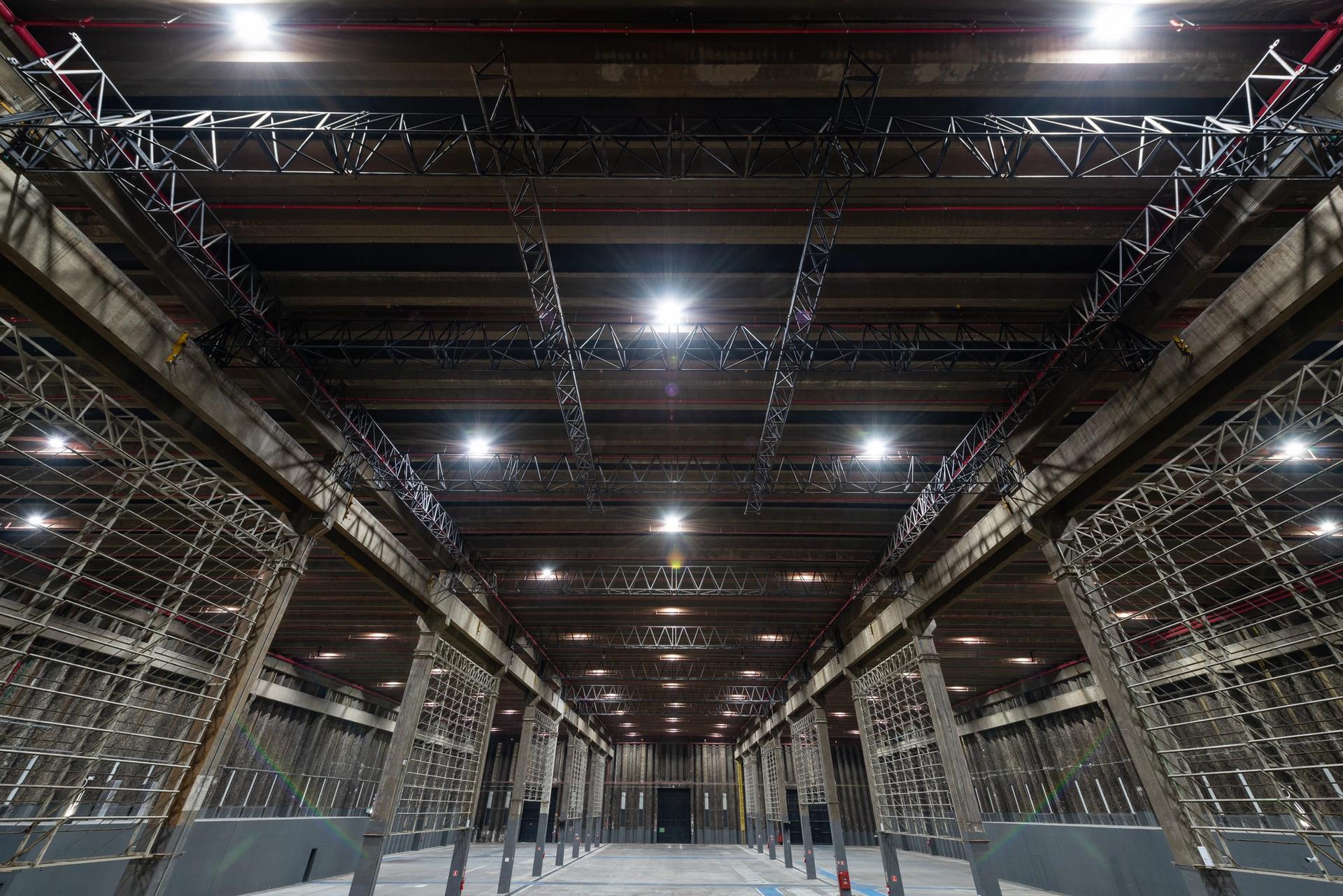
What are some challenges you faced as a manager of the space or as a co-founder?
Several! First of all, ARCA was the first venue of its kind in São Paulo. So to evangelize clients and decision-makers in important brands that this could be a viable venue even for the most sophisticated production, that was the initial challenge. Our own events helped in that sense because we could illustrate what is possible inside the space.
I think that establishing and cultivating the relationship with the community that surrounds us was also tricky in the beginning. In some ways, it still is because there's a lot of complexity there. There is the community leadership, but they live in very harsh conditions. There is some drug trafficking inside the community, so we have to navigate in a way that will gradually bring us to a new and better reality, but avoiding conflict, avoiding being impulsive in any sense, and especially avoiding putting ourselves in a position that "we know what's best for you." We have to be open to listening. We have to be open to learning about their particular realities and work from there, not from our own perspectives. Many times, we can't grasp some of the problems they go through, and to support this community and provide them with opportunities for leisure, jobs, and capacitation is a real privilege for us.

Ben Klock @ Time Warp
What advice do you have for anyone that would like to set up an establishment like yours?
First, listen to the critics to polish your idea but don't be hostage to their opinions. We heard many people saying, 'you're crazy. This is never going to work out. How are you bringing the hot shot clients to a space that was so dirty and deteriorated?" We said, "wait and see" because we saw that happening elsewhere in the world, and we know that it's possible to pull it off.
Try to be original in the way that you develop the business model. For us, that was really important. That brought us the resilience to go through the pandemic and come to the other side organized, healthy, and ready for takeoff.
Be a real partner to the people that work with you. Our landlords don't see us as regular tenants because what we do is valuable for them in terms of place-making and increasing the value of the property. We always try to listen to them and involve them in strategic decisions because we want to have them on our side. The same goes for the community.
Lastly, see your business not only through the lens of the bottom line but also the value you can bring to society as a whole, to the audience, the culture, the economy, and of course, in a financially sustainable way.
